The pianist is discovering London.
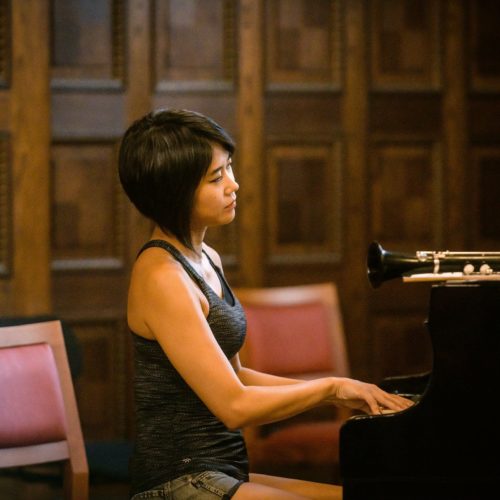
The pianist is discovering London.

Alena Baeva writes:
80 years ago Germany invaded Poland. Many lesson have been learned, many mistakes have been aknowledged.
This photo is taken today in Warsaw, September 1st 2019, on the opposite side of the Philharmonic hall where we will play Mieczyslaw Weinberg’s violin concerto tonight. Now, all this is quite special.
Weinberg would have been 100 years old this year. He managed to escape from Poland to Soviet Union in 1939, being just 19 years old talented Jewish musician, but his parents and younger sister never made it out of Poland: they missed the train and later died in a concentration camp. Weinberg suffered a lot throughout his life. He was sent to jail, as so many of innocent people in Soviet union, because his wife’s father Solomon Mikhoels was accused and assasinated during Stalin’s antisemitic campaign in 1948.
Weinberg was very modest and introvert, always a little alien in Soviet Union. Only in his music we can hear a hint about his inner world. He was close friends with Shostakovich, who adored his music and helped him a lot, but Weinberg’s music was almost ignored for most of his life, he could compose for some period of time only for movies and circus to earn his living, without even being credited…
My first encounter with his music was thanks to Gidon Kremer, a Weinberg pioneer – we worked on his Chamber symphony. …The Violin concerto has it all inside. It really seems to me very autobiographical. It speaks, sings, cries, every note is sincere, there is nothing too much, rich and finest details masterfully shaped – which we will try to bring out tonight as much as we can. I am very grateful to Andrey Boreyko for his experience and love to this music which he shared with me, and to marvellous Warsaw Philharmonic orchestra (who, by the way, made a fantastic recording of the piece several years ago with Ilya Gringolts).
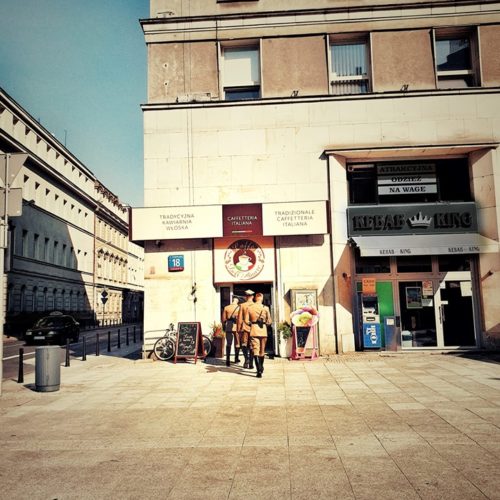
It was a record August on Slipped Disc with 1,629,000 readers, including 219,000 new visitors. According to Google Analytics, 61 percent of our readers were under the age of 35.
Our analysis of the Placido Domingo takedown bid may have collared the limelight, but there were other major stories, among them:
– a singer stalking a conductor
– two contrasting women conductors at the Proms
– Jonas Kaufmann acting against his local newspaper
and
– a vocal attack on the Met’s music director.
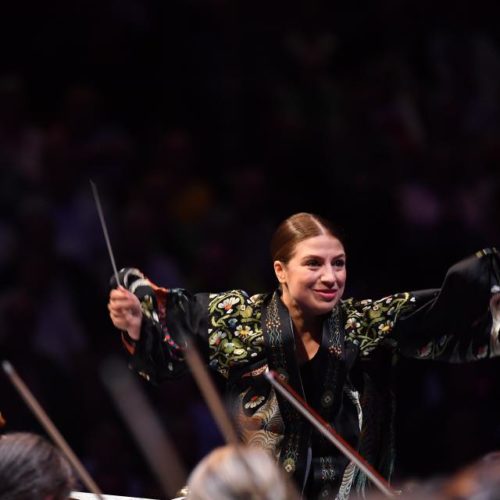
Aleth Michel has suffered the loss of two valued instruments in a housebreak-in this weekend at Gif-sur-Yvette, a south-western suburb of Paris. Aleth tells Slipped Disc:
‘They smashed a bay window to get in and grabbed the two instruments. A teenage son in the house heard the noise, went to see what was happening and the burglars ran away.’
The viola has a label ‘Aleth Michel Luthier made in Bristol 1999’ and is modelled on a Pietro G Mantegazza 1793 (bottom length on vault 404.5 mm, top width of the bottom on vault 195,5 mm , the cs width on vault 131 mm and measured with a backstage foot 127,5 mm, width on the bottom of the lower part 244 mm). In a black Chinese Trapezoidal Box, with a dark blue interior and cover for the instrument. Two viola bows in the box one signed Gilles Chancereul.
The violin has a LOUIS GUERSAN 1747 label, bottom of a very wavy wood piece (bottom length on vault 364 mm but normal fork length of 195 mm) the varnish is dark brown red. Tw bows.
Please contact Aleth on Facebook if you are offered these instruments.

Jakub Hrůša has posted news of the death of his conducting teacher, Professor Radomil Eliška.
A provincial music director in Karlovy Vary for 30 years, Eliška landed a teaching post in 1978 at the Academy of Performing Arts in Prague where, for the rest of his life, he trained two talented generations of conductors.
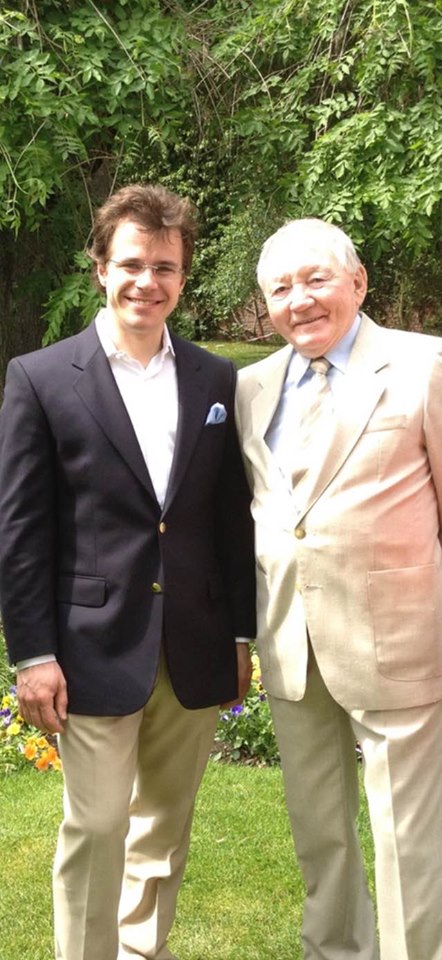
Our good friend Leonard Slatkin is 75 today.
He spans three eras of American music – the years when Hollywood depended on orchestras, the decades when going to hear an orchestra was a mark of a civilised person, and our present confusion when no-one is entirely sure what an orchestra signifies.
But Leonard just carries on making good music, great music, with orchestras that keep on getting better and better.
We hear he’s throwing first pitch at the Cardinals today.
Happy birthday, Leonard!
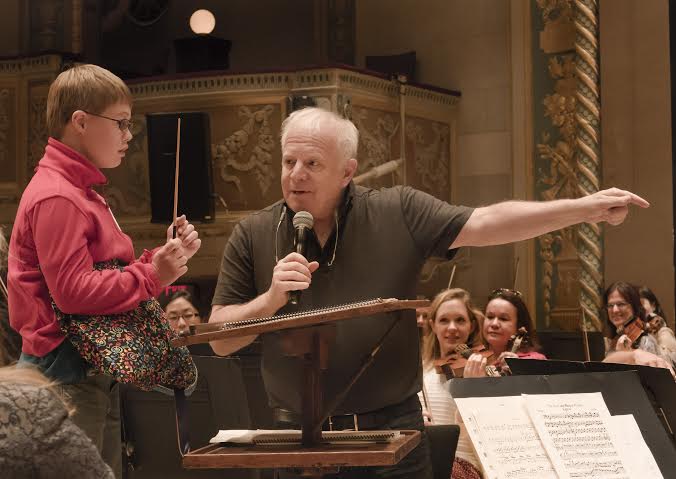
The outspoken US soprano Jamie Barton, in conversation today with Fiona Maddocks:
You’ve revealed you’ll be wearing the bisexual pride colours of lavender, pink and blue at the Last Night… tell us more.
I’m so thrilled about the dress – and the Last Night! I never dreamt I’d be asked to do this gig. It’s 50 years since the anniversary of Stonewall. It’s so important for me to stand up proudly as a bisexual woman. What I can tell you is that the main colour of the dress will be pewter, with a cape element, a bubble sleeve – and a reveal! That idea of reveal is very much part of queer culture, and drag. It’s a way of saying this is who I am.
Er, yes. Perhaps.
The Last Night of the Proms is a celebration of music. Attempts to promote social and political causes have previously been frowned upon.

The American soprano, who accused various critics of reviewing her body rather than her voice, has named the main alleged culprits.
In an interview with Salzburger Nachrichten, she singles out Manuel Brug, critic of Die Welt, and – vaguely, ‘British media’.
‘I have not experienced it in the US yet, but in British media. It’s not just about me. When I heard about the experiences of many colleagues, I saw it as my job to talk about it.’

UPDATE: Kathryn Lewek has posted again:
For those of you who are interested in the nitty gritty, here is my #lettertotheeditor of WELT, where Manuel Brug’s article was published describing my colleagues and me as “…dicke Frauen in engen Korsetten in diversen Separees die Beine breit.” (Fat women in tight corsets spreading their legs in various rooms…)
When Mr. Brug was confronted by Mark Brown of the The Guardian, his response was, “If she is so sensitive why is she showing herself the whole time in this corset? It is interesting that the thin ladies on stage all had dresses and the not so thin ones have costumes where you see a lot of her weight.”
Meanwhile, I sent his editors this letter:
Stefan Aust, Herausgeber
Ulf Poschardt, Chefredakteur
To the editors:
You recently published a piece by Manuel Brug reviewing several productions of the Salzburger Festspiele under the headline “Hier schlackern die Glieder, hier muss man sein”. Of the Barrie Kosky production of Orphée aux Enfers, Brug wrote “Und leider läuft der gut geölte Marionetten-Mechanismus schnell leer, immer wieder machen dicke Frauen in engen Korsetten in diversen Separees die Beine breit.”
While it is the prerogative of any reviewer to evaluate his subject, this particular assessment betrays a dearth of both journalistic aptitude and human decency.
Attacking the work as inelegant is a valid criticism — an obtuse and juvenile one, yet valid nonetheless. But to attack unspecified female members of the cast as “dicke Frauen”? This is the work of a lazy chauvinist, seeking pats on the back from his fellow hooligans. How is this worthy of such a venerable publication as Die Welt?
Personal insults are lazy ways to fill columns, but they also can be quite hurtful. In my case, being a new mother has added a large amount of stress to my life. Now I have to add to that caustic remarks propagated by your publication?
Imagine if your own mother had such an insult leveled at her—would you feel comfortable communicating it to your hundreds of thousands of readers?
I ask that you more carefully consider your responsibilities as editors and that you set higher standards of quality and decency for your employees.
Sincerely,
Kathryn Lewek
Dr. Poschardt responded:
Dear Ms. Lewek,
I thank you for your letter and am sorry to hear that you feel irritated by Manuel Brug‘s report on the Salzburg “Orphée”. Yet I think there is a basic misunderstanding: This report was not meant as a personal insult – and it is not written as a personal insult. What Manuel Brug did attack though, was Barrie Koskys stage-direction – and his view on woman expressed in this stage-direction. This is marked clearly in the first part of the sentence quoted by you: „Und leider läuft der gut geölte Marionetten-Mechanismus schnell leer, immer wieder machen dicke Frauen in engen Korsetten in diversen Separees die Beine breit.” Mr. Brug‘s opinion is not aiming at a certain singer, which is the reason it is put in the plural and without any name or further specification. What Manuel Brug is aiming at, is a theatrical stereotype – a burlesque “Marionetten-Mechanismus”, which uses (or abuses) a certain type of female stage character to achieve an atmosphere of cheap laughter, like in an English pantomime or in the Italian Commedia dell’arte. If the polemic sentence is judging anything, then it is the aesthetic world of Barrie Kosky, who plays to with a certain female cliché. This aesthetics might be called mysoginist, not Mr. Brug‘s clear words about it. To describe and criticize aesthetical stereotypes, even in drastic words, is the job of a journalist.
Best regards
Dr. Ulf Poschardt | Chefredakteur
Below is my recent reply:
Dear Dr. Poschardt,
Thank you for your response, but your assertion that I have a “basic misunderstanding” baffles me.
Obviously, Herr Brug is critical of Barrie Kosky’s “Marionetten-Mechanismus” — I acknowledged as much when I noted that inelegant direction is a legitimate target for a critic’s ire (though in this case, such a critique is pedestrian and boring). But Brug does not say “Kosky beleidigt Frauen, indem er sie zwingt, ihre Beine zu spreizen und schmeichelhafte Kostüme zu tragen.” Instead, he calls out all the “Frauen” who might be considered “dicke” in the cast, explicitly critiquing our bodies alongside the stage direction of “Beine breit”.
You will note that by way of supporting his disparagement of Kosky’s direction, he trains his critical eye exclusively on the “dicke Frauen”. Nary a mention of any “dicke Herren” in the cast (despite the presence of a rather rotund entirely naked man in the underworld scenes), nor a negative mention of any of the other aspects of the “Mariotten-Mechanismus” staging, in which the male performers frequently and deliberately imitate puppet movements as part of Kosky’s aesthetic, including caricatured sex. Instead, we’re supposed to smile along with Herr Brug as he is mildly entertained by “geniale” oinking and only yawn when the “dicke Frauen in engen Korsetten” spread their legs.
As for your assertion that Brug was actually berating Kosky for being misogynistic, I am astonished. George Orwell himself would be impressed by the audacity of this retroactive analysis. (I almost expected your valediction to read “Ignorance is Strength”.) Beyond being irreconcilable with Brug’s printed words in Die Welt, such a notion is witheringly belied by his own public response to my critique, as quoted in The Guardian: “If she is so sensitive, why is she showing herself the whole time in this corset? It is interesting that the thin ladies on stage all had dresses and the not so thin ones have costumes where you see a lot of her weight.”
Back in your newspaper, the only other description lent to a woman in our cast is reserved for Anne Sofie von Otter who is merely, of course, an “Alt-Mezzo”. She is presumably not “dick”, as we are told she is clad as a “Pastorengattin”. Still awaiting word on her performance (or any other woman’s), though.
Clearly, Herr Brug is not championing women here, and his criticism of this operetta is inept. Is he really someone on whom to stake your paper’s reputation? Is his puerile schlock worth publishing, let alone defending? If Brug was my employee, instead of penning a condescending apologia in his support, I would reprimand him not only for being cruel but for being too lazy to bother to support his pedestrian criticisms with anything more than childish insults.
Sincerely,
Kathryn Lewek
The outgoing sovrintendente says he had been hoping to end his career in Milan. However, ‘there was a member of the supervisory board who fought me from day one.’
As soon as word spread that his contact would not be renewed at La Scala, ‘I received three offers – all for five years.’
Pereira is 71. He is heading to Florence.
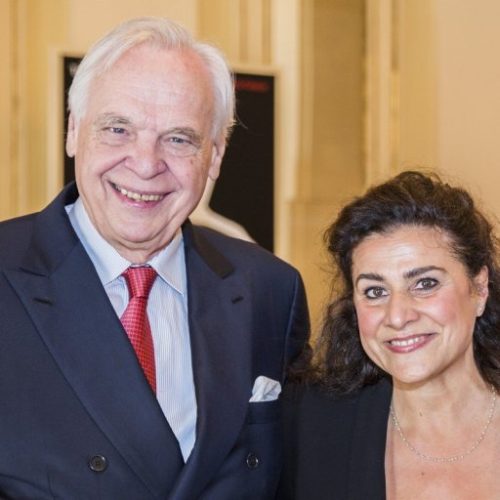
High on the hills, a lonely goatherd might have wondered what the fuss was all about.
The Salzburg Festival rose to its feet last night to acclaim Placido Domingo, accused in the US of sexual misconduct.
He had reprised his performance as old-man Miller in Verdi’s Luisa Miller, with his Los Angeles Opera music director James Conlon conducting and Nino Machaidze in the title role.
All good pals, rallying round to support the aging lion. The ovation lasted 15 minutes. Listen to it.
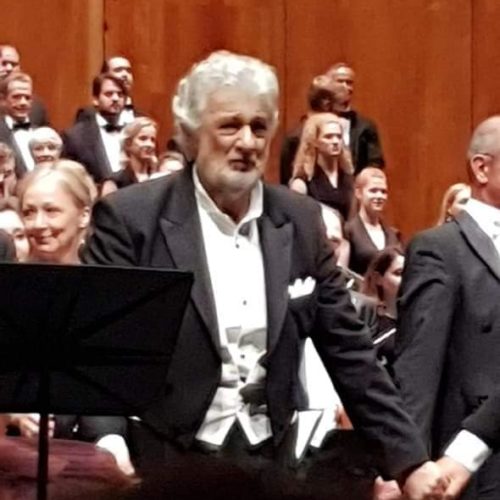
What next?
Business as usual. Whatever the outcome of the LA law inquiry, Domingo can sing out his days in Europe untouched by the failed allegations.
The tenor Richard Conrad, who caught the ear of Joan Sutherland and Marilyn Horne and sang with them on Decca’s Age of Bel Canto, has died after a long illness, aged 84.
He spent the 1970s in Rome, returning home in 1980 to found the Boston Academy of Music.
A severe mugging in 1983 left him with trauma and vocal injury, after which he retrained as a baritone.
Obituary here.
We’re rejoicing at the wedding this weekend of Cherrie Chan to Scott Wang.
Cherrie is the extraordinary executive director of the Isaac Stern Competition and head of the artistic committee of the Shanghai Symphony Orchestra.
Scott studied law in Ohio and lives in Shanghai.
We wish them endless happiness.

